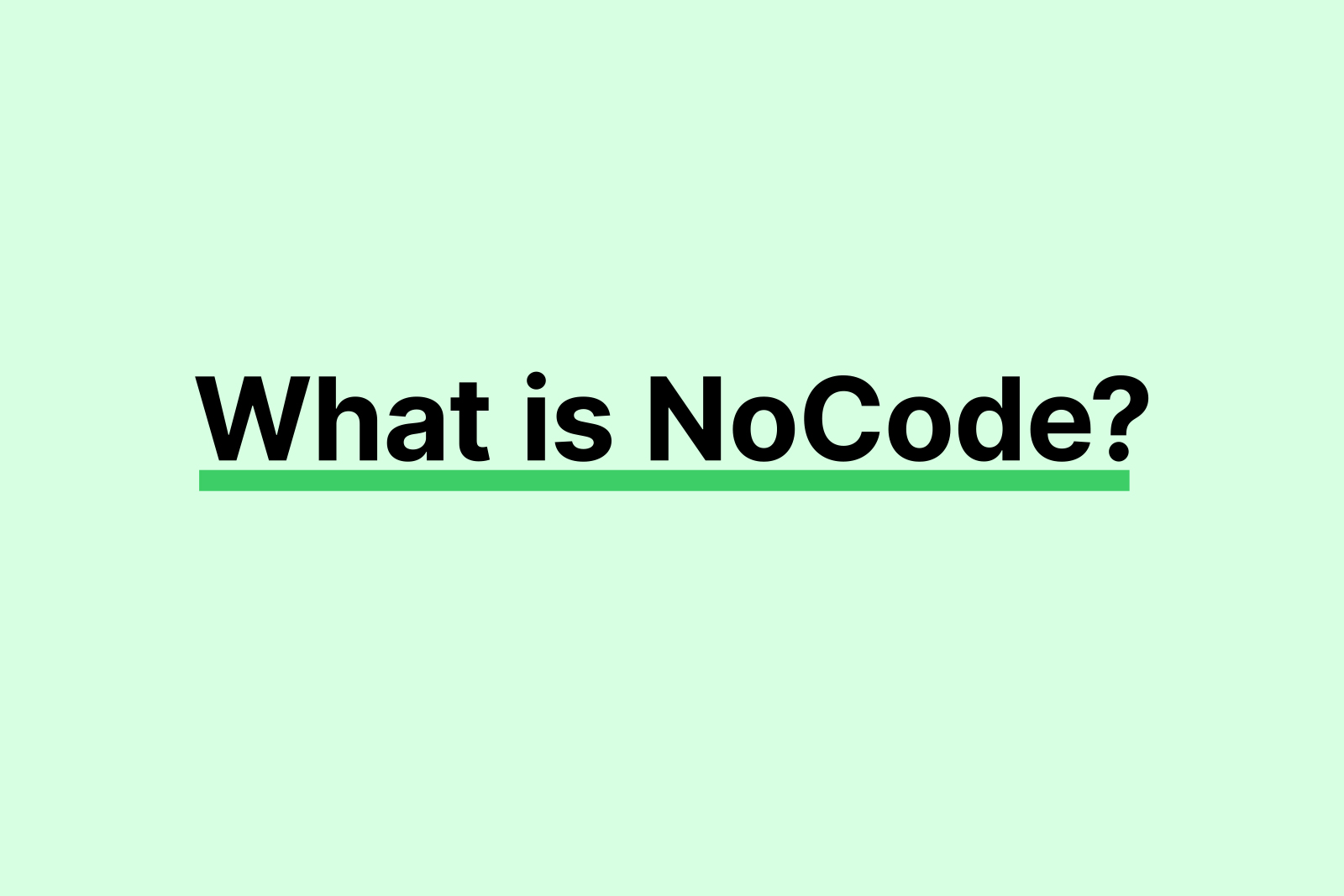The term “nocode” might sound like something out of a sci-fi novel, but it’s actually a game-changing movement that’s reshaping the way we build and launch software. In this article, we’ll dive deep into the world of nocode, exploring its ins and outs, while also sharing 20 popular nocode platforms and tools. To top it all off, we’ll point you in the direction of some excellent resources to learn nocode. So, let’s get started!
NoCode?
NoCode is a revolutionary approach to software development that allows individuals and businesses to create functional applications, websites, and other digital products without writing a single line of code. This has opened up the world of app and web development to a wider audience, empowering non-technical users to bring their ideas to life without relying on developers.
Now that we’ve covered the basics, let’s dive into 20 popular nocode platforms and tools, along with their links, to help you explore this exciting domain further.
NoCode Platforms & Tools
- Webflow (https://www.webflow.com/) Webflow is a powerful visual web design tool that allows users to design, build, and launch responsive websites without any coding knowledge.
- Bubble (https://bubble.io/) Bubble is a versatile platform that enables users to build web applications with an intuitive drag-and-drop interface, covering everything from simple websites to complex applications.
- Wix (https://www.wix.com/) Wix is an easy-to-use website builder that offers a variety of templates and tools, allowing users to create stunning websites without any coding experience.
- Adalo (https://www.adalo.com/) Adalo is a nocode platform that helps users create mobile and web applications with a simple drag-and-drop interface.
- Carrd (https://carrd.co/) Carrd is a platform for building simple, responsive, one-page websites with an easy-to-use interface.
- Zapier (https://zapier.com/) Zapier is a nocode automation tool that allows users to connect various apps and automate workflows without writing any code.
- Trello (https://trello.com/) Trello is a visual collaboration tool that helps teams manage projects and tasks without the need for complex programming.
- Airtable (https://airtable.com/) Airtable is a powerful spreadsheet-meets-database platform that allows users to organize, collaborate on, and analyze data without any coding knowledge.
- Notion (https://www.notion.so/) Notion is an all-in-one workspace for notes, tasks, wikis, and databases, offering a variety of templates and tools to streamline your work.
- Glide (https://www.glideapps.com/) Glide enables users to create mobile applications from Google Sheets, offering a simple way to transform spreadsheets into fully-functioning apps.
- Dorik (https://dorik.com/) Dorik is a website builder that allows users to create responsive, single-page websites with an easy-to-use interface and customizable templates.
- Retool (https://retool.com/) Retool is a platform that allows users to build custom internal tools quickly and efficiently, without having to write any code.
- Voiceflow (https://www.voiceflow.com/) Voiceflow is a nocode platform for designing, prototyping, and launching voice applications for Amazon Alexa and Google Assistant.
- Appgyver (https://www.appgyver.com/) Appgyver is a nocode platform that allows users to create web and mobile applications with an intuitive visual interface.
- Make (Integromat) (https://www.make.com) Make is an automation tool that helps users connect apps and automate workflows without writing any code, streamlining business processes and boosting productivity.
- Outgrow (https://www.outgrow.co/) Outgrow is a nocode platform that enables users to create interactive content like quizzes, calculators, assessments, and surveys without any coding knowledge.
- Parabola (https://parabola.io/) Parabola is a visual programming platform that allows users to automate data workflows and create custom integrations without writing code.
- Thunkable (https://thunkable.com/) Thunkable is a nocode platform that empowers users to create mobile apps for iOS and Android using a simple drag-and-drop interface.
- Coda (https://coda.io/) Coda is an all-in-one document platform that combines documents, spreadsheets, and applications, allowing users to create custom tools without coding.
- Softr (https://www.softr.io/) Softr is a nocode website builder that lets users create web applications and websites using Airtable as a backend.
NoCode Learning Resources
Now that we’ve covered some popular nocode platforms and tools, let’s explore a few resources to help you learn and master nocode development.
- Makerpad (https://www.makerpad.co/) Makerpad is an online learning platform that offers tutorials, courses, and community support for nocode enthusiasts.
- NoCode.tech (https://www.nocode.tech/) NoCode.tech is a comprehensive resource that features a directory of nocode tools, tutorials, and case studies to help you get started with nocode development.
- NoCodeDevs (https://www.nocodedevs.com/) NoCodeDevs is a platform that offers video tutorials, articles, and community support for those interested in learning nocode development.
- NoCode Essentials (https://www.nocodeessentials.com/) NoCode Essentials is a collection of video courses and tutorials that guide users through building projects with various nocode platforms and tools.
- Visual Dev FM (https://www.visualdev.fm/) Visual Dev FM is a podcast dedicated to nocode development, featuring interviews, news, and discussions on the latest trends and tools in the nocode ecosystem.
Conclusion
Nocode development is a rapidly growing field that has the potential to democratize software development and empower more individuals and businesses to bring their ideas to life. With a plethora of nocode platforms and tools available, along with helpful resources to learn the ropes, there’s never been a better time to dive into the world of nocode. So, why not give it a try and see how it can transform your next project?
